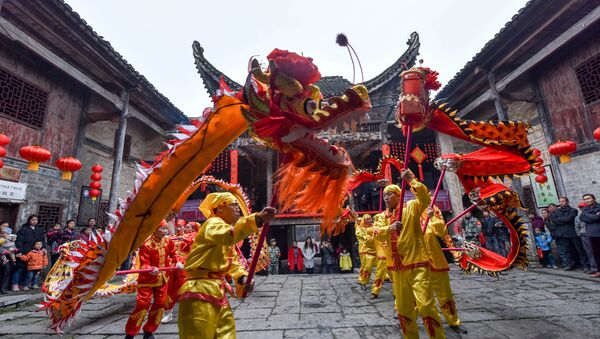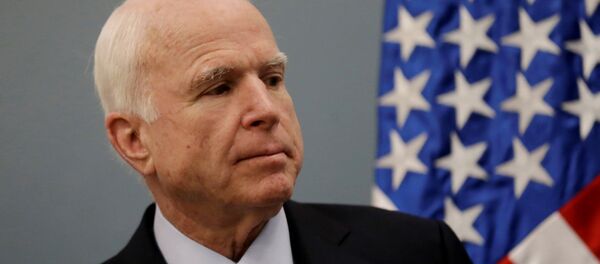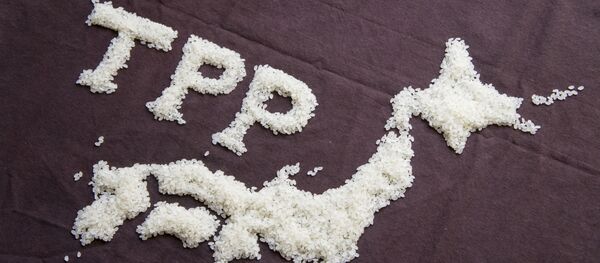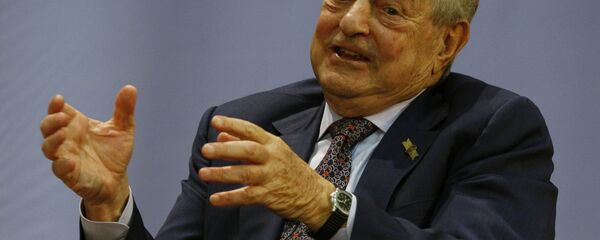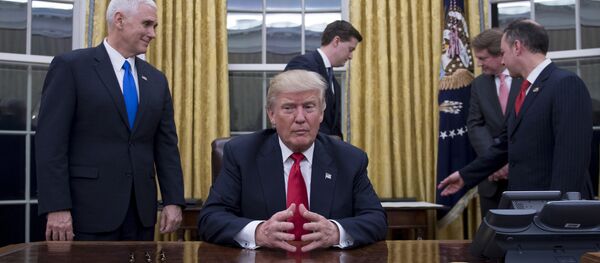America's withdrawal from the Trans-Pacific Partnership will cause no harm to the US economy as long as Donald Trump is in control of American trade policies, Eurasian Business Coalition Vice President Ralph Winnie told RIA Novosti.
"I don't think that the US withdrawal from the TPP will have a negative impact on the US while Trump is in control, and involved in the process," Winnie said.
He has called attention to the fact that earlier this week Trump pledged to cut taxes and regulations "massively" to create more jobs in the US.
"We are going to be cutting taxes massively both for the middle class and for companies —and that's massively," Trump said as quoted by Politico.com.
"We think we can try to cut regulations by 75% — maybe more," the US President added.
Winnie expressed doubts that the TPP could have helped the new US administration to breathe new life into the American economy. The US will now seek to strike bilateral trade deals with other nations, according to the expert. He underscored that the US president is likely to give priority to individual agreements over multilateral global treaties.
However, Andrei Ostrovsky, Deputy Director of the Institute of the Far East, Russian Academy of Sciences, suggested that Trump's decision to rip up the TPP has untied China's hands in the Asia Pacific region.
"Trump's decision [to withdraw from TPP] will allow China to bolster its trade and economic expansion in Southeast Asia," Ostrovsky said at the Rossiya Segodnya press conference.
In any event, China is likely to become the main beneficiary of the new administration's move, Ostrovsky highlighted.
It appears that US Senator John McCain shares a similar stance. According to the American senator, the US' retreat from the TPP has put China in Asia's economic driver seat.
"My concern is that we consign the Asia-Pacific region to China. They have now a very significant economic role, where 60 percent of the world's economy is in the Asia-Pacific region, and we are stepping back," McCain said in an interview with CBS.
Michael McFaul, former US Ambassador to Russia, echoes McCain.
By withdrawing from TPP today, Trump — "the dealmaker " — just handed China a giant victory. For free.
— Michael McFaul (@McFaul) 23 января 2017 г.
"By withdrawing from TPP today, Trump — "the dealmaker " — just handed China a giant victory. For free," McFaul tweeted Monday.
For their part, critics of the deal draw attention to the potential harm the TPP could have inflicted on US workers.
Former presidential candidate Bernie Sanders warned that "TPP will allow corporations to outsource even more jobs overseas." He also stressed that the "US sovereignty will be undermined by giving corporations the right to challenge [US] laws before international tribunals."
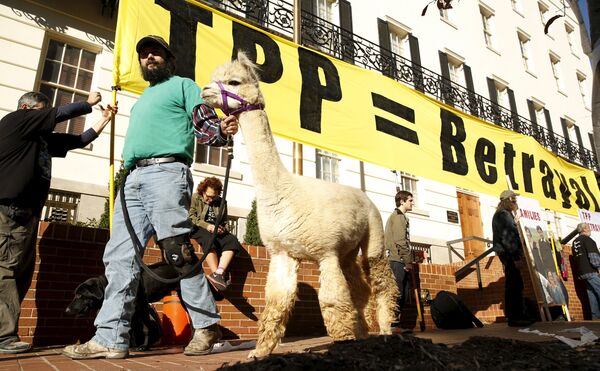
In all respects the TPP was "a bad deal," Jean Blaylock, policy officer at Global Justice Now told Sputnik earlier this week.
"TPP was a bad deal that would have pushed a corporate deregulatory agenda in all the countries involved, not just the US. However, without a commitment to a fair trade policy that supports decent jobs, wages and public services, protects the environment, climate and health, and is developed democratically and transparently, we will just get more and more toxic trade deals," Blaylock pointed out.
However, some analysts believe that the project was doomed from the very beginning.
According to the Guardian columnist Owen Jones, the deal was "dead" even before Trump ripped it up.
"Can everyone stop saying Donald Trump killed off the Trans-Pacific Partnership? He didn't. It was already dead. Thanks to pressure from ordinary Americans — yes, it really does work — TPP already lay without a pulse on the floor of Congress," Jones pointed out.
"I don't think it's a big worry that China will 'swoop in' to gain agreements with these countries that will harm US exports — [but] there is plenty of competition against China to maintain their separate identities and to sell similar products outside the region," Friedman told Sputnik, stressing that just like Trump Asian nations put their own national interests first.
On Monday Trump announced that the US was exiting the Trans Pacific Partnership trade deal that his predecessor Barack Obama had negotiated with 11 other nations.

